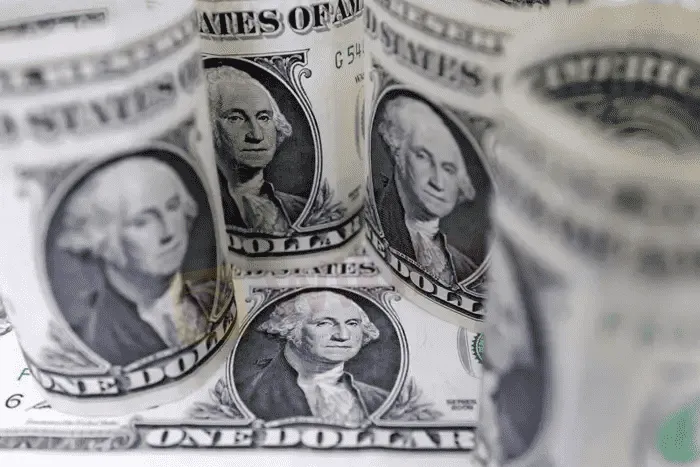简体中文
繁體中文
English
Pусский
日本語
ภาษาไทย
Tiếng Việt
Bahasa Indonesia
Español
हिन्दी
Filippiiniläinen
Français
Deutsch
Português
Türkçe
한국어
العربية
Dollar gains as traders gird for higher U.S. rates
Abstract:The dollar was on the front foot on Thursday after Federal Reserve Chair Jerome Powell signalled U.S. rates would likely rise further than expected, disappointing traders’ hopes for a change in tone, and shifting the focus to Friday’s jobs data.

The dollar hit a week-high of $0.9810 per euro in early Asia trade and is eying its best week in more than a month, although a Bank of England meeting and U.S. labour data loom before the close of trade in New York on Friday.
The Fed raised its benchmark funds rate by 75 basis points to 3.75-4% as widely expected. The dollar initially fell on hints in the Fed‘s statement of smaller hikes ahead, but it was bid after Powell’s hawkish stance about the trajectory rates.
“Incoming data since our last meeting suggests that the ultimate level of interest rates will be higher than previously expected,” Powell told reporters, adding: “It is very premature to be thinking about pausing…we have a ways to go.”
The dollars gains knocked its New Zealand peer from a six-week high and back below its 50-day moving average to $0.5890. The Australian dollar fell 0.7% overnight and slipped further to a week-low of $0.6332 on Thursday. [AUD/]
“Strong hawkish messaging from the Fed chair pours cold water on premature dovish pivot expectations,” said analysts at Citi, who recommend staying long the U.S. dollar in Asia.
“This shall further embolden expectations of policy divergence with a much hawkish Fed relative to other central banks around the world. Further tightening of financial conditions shall put downward pressure on risk assets and strengthen the dollar.”
Japans yen was notably firm in the face of dollar gains, and has held at 147.90 per dollar, prompting speculation of possible help from official intervention.
Japan spent a record $42.8 billion propping up the yen last month via a series of unannounced yen purchases, on top of almost $20 billion spent in September. Japanese markets were closed for a holiday on Thursday, thinning Asian currency trade.
Sterling fell 0.8% on the dollar overnight to sit at $1.1378 in early deals on Thursday. Markets are priced for the BoE to deliver its biggest hike since 1989 and raise interest rates by 75 basis points later in the day.
“The risk is that the BoE maintains the current pace of tightening and delivers a 50bp hike,” said Commonwealth Bank of Australia analyst Kim Mundy. “A 50bp hike would be considered ‘dovish’ by market participants and can push sterling lower.”
The U.S. dollar index stood at 112.13, its highest in seven sessions. Chinas yuan was hovering near record lows in offshore trade at 7.3408 per dollar, and other Asian currencies were under pressure.

Disclaimer:
The views in this article only represent the author's personal views, and do not constitute investment advice on this platform. This platform does not guarantee the accuracy, completeness and timeliness of the information in the article, and will not be liable for any loss caused by the use of or reliance on the information in the article.
Read more

Top 10 Trading Indicators Every Forex Trader Should Know
Master the top 10 Forex trading indicators to analyze real-time Forex quotes, trends, and market signals. Learn strategies to boost accuracy and avoid mistakes.

Geopolitical Events: What They Are & Their Impact?
You've heard many times that geopolitical events have a significant impact on the Forex market. But do you know what geopolitical events are and how they affect the FX market? Let us learn about it today.

Why Do You Feel Scared During Trade Execution?
Trade execution is a pivotal moment for traders. It is when analysis turns into action, and potential profits or losses become reality. However, for many traders, this moment is accompanied by fear. Why does this happen, and how can you address it?

Malaysian Influencer Detained in Taiwan Over Alleged Role in Fraud Scheme
Malaysian influencer Hu Chang Mun, widely known as Ady Hu, has been detained in Taiwan for his alleged involvement in a fraudulent operation. The 31-year-old, who was reported missing earlier in December, was located by Taiwanese authorities after suspicions arose regarding his activities.
WikiFX Broker
Latest News
Volkswagen agrees deal to avoid Germany plant closures
Geopolitical Events: What They Are & Their Impact?
Top 10 Trading Indicators Every Forex Trader Should Know
WikiEXPO Global Expert Interview: Simone Martin—— Exploring Financial Regulation Change
TradingView Launches Liquidity Analysis Tool DEX Screener
MultiBank Group Wins Big at Traders Fair Hong Kong 2024
'Young investors make investment decisions impulsively to keep up with current trends' FCA Reveals
Why Do You Feel Scared During Trade Execution?
CySEC Settles Compliance Case with Fxview Operator Charlgate Ltd
Malaysian Influencer Detained in Taiwan Over Alleged Role in Fraud Scheme
Currency Calculator


